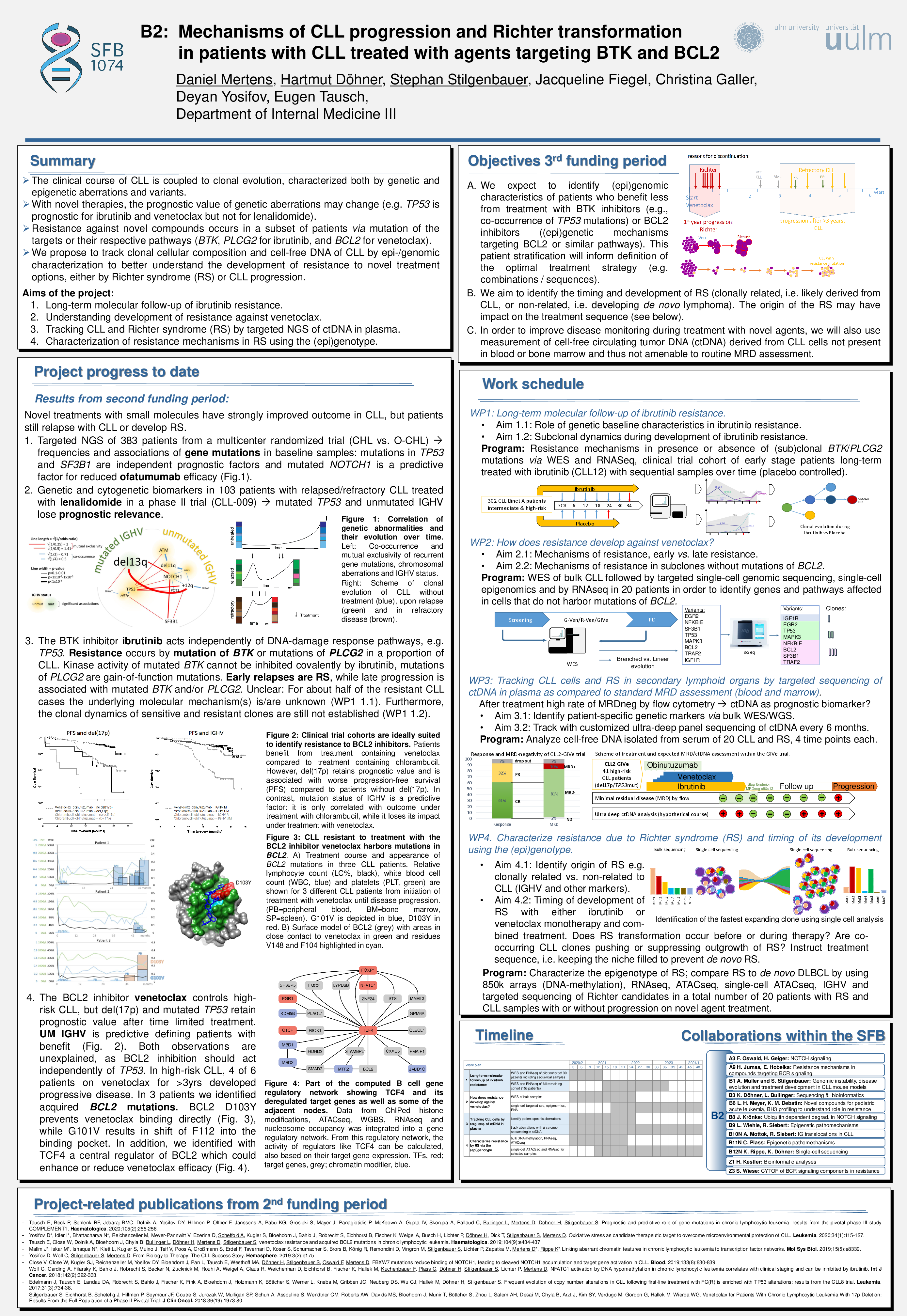B2: Mechanisms of CLL progression and Richter transformation in patients with CLL treated with agents targeting BTK and BCL2
Principal Investigators
PD Dr. rer. nat. Daniel Mertens
Department of Internal Medicine III
Albert-Einstein-Allee 23
89081 Ulm
Phone: 0731-500-45870
daniel.mertens(at)uniklinik-ulm.de

Prof. Dr. med. Hartmut Döhner
Department of Internal Medicine III
Albert-Einstein-Allee 23
89081 Ulm
Phone: 0731-500-45501
hartmut.doehner(at)uniklinik-ulm.de

Prof. Dr. med. Stephan Stilgenbauer
Department of Internal Medicine III
Albert-Einstein-Allee 23
89081 Ulm
Phone: 0731-500-45521
stephan.stilgenbauer(at)uniklinik-ulm.de

Summary
CLL is a paradigm for the relevance of (epi)genetic biomarkers for treatment outcome and also for the development of rationale treatments. In the second funding period, we demonstrated the prognostic and predictive role of genetic aberrations for response to treatment, the mechanisms of resistance to novel targeted therapies, and the clonal dynamics over time under treatment. Our findings are an excellent basis for the third funding period to 1) characterize ibrutinib resistance over time; 2) understand resistance to venetoclax and differentiate resistance to monotherapy versus combination regimens; 3) use cell-free circulating tumor (ct)DNA to assess response to novel treatments in patients achieving negativity for minimal residual disease in the blood; and 4) complement genetic aberrations with epigenetic characterization and other contributing factors (e.g. external stimulation) of Richter syndrome (RS). To address these questions, we will use whole exome sequencing to inform targeted sequencing and single-cell sequencing on unique cohorts from clinical trials. This includes trials in patients with early stage disease who are long-term treated with novel agents, with continuous sample acquisition (blood and plasma). In addition, we have access to paired lymph node and peripheral blood samples from patients with RS. This set-up will allow us to address prediction of treatment response and understanding resistance mechanisms to treatment with the novel agents in CLL.
For a current list of all project-related publications, please go to this page

